Prof. Keller loses her office at ETH Zurich
Following new rules from the physics department regarding professors nearing retirement, Prof. Keller has given up her ETH office (HPT E16.3) to allow her current PhD students to finish their research work. She now has a desk in HPT E16.2 next to her secretary, in the ultrafast laser physics group (ULP) reception. When not there and as required by covid guidelines, she continues to be available remotely over Zoom, often in her personal home office.
Prof. Keller had to clean out her ETH office in HPT E16.3 just before the Christmas holidays, occupied since her start at ETH in March 1993, as required by new rules established within the physics department to satisfy a limited space-time integral of the group’s lab and office space thru her current mandatory retirement in July 2024. These rules are also a response to the new possibility of extending the retirement of professors up to 5 years (Link).
What does this space-time integral mean for our very active research group, with several large competitive research grants running past the mandatory 65-year-age retirement date, which in her case is July 2024?
According to current well-established regulations, ETH professors may hire new PhD students until 3 years before retirement and with the approval of the department until 2 years before retirement. This means that some PhD students may finish 1 to 2 years after the mandatory retirement of the professor. We hired the last ETH PhD student in Dec. 2021 and therefore our last PhD student is expected to finish by November 2025 at the latest – 16 months after July 2024.
The new space-time integral rule now applies independently of any retirement extension, and means in our case that we needed to give up space now, to allow for the space that our PhD students need to finish their PhD research work.
The new rules for the retirement phase of the professors in the physics department require a strict implementation of the space-time integral (Link). Prof. Keller and her team could not come up with better solutions without endangering current research projects, so – even though it seems there is no dire shortage of office space in physics, and we requested various solutions requiring approval from the institute and department – this was the only solution left available and approved on 13. December.
Prof. Keller’s appeal to the department, based on excellence justifications - ongoing competitive research grants (i.e. ERC advanced grant and SNF excellence grant, both external indications of excellence) and excellent feedback on her group from the last departmental external evaluation in 2020 - plus a very dynamic and active group with 15 PhD students and 6 postdocs in Dec. 2021 (Link), a requested transition phase with newly implemented rules given the limited time left in our specific case, and her concern of a “broader sense of fairness”, were not considered sufficient for majority approval from either department or institute.
What do we mean with a “broader sense of fairness”? The space-time integral rule was strictly applied in our case even though there is limited time left due to the late development of this new rule, and professors retiring later will be able to lessen the impact on their research. As always, such rules may also have unintended consequences, as a professor could try to accumulate space over time before getting closer to their 65-year retirement age to benefit from this approach.
Moving a 28-year office was both an emotional – and physical load – a somewhat amazing amount of paper material had accumulated over this time! Fortunately, most journals and written material really have moved to the cloud. Cleaning up was a major effort and required multiple bins to remove all the old paper. Her husband and two sons helped her move the remaining boxes on December 27th, setting up her new home office over the Christmas holidays. Saying good-bye to her long-term ETH office – two and a half years prior to her official retirement – was still somewhat emotional. Her home office – definitely smaller than her ETH office – at least has a fast fiber-optic internet, so Zoom meetings should continue to work well.
In the end - “JUST DO IT” means that our extremely active and productive ULP research and PhD students have to take priority.
-
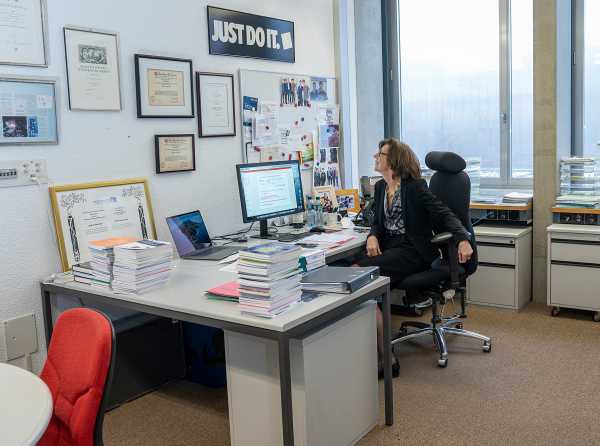
Last photo in office of Prof. Keller at ETH Zurich, HPT E16.3, 15. Dec. 2021 (Foto Heidi Hostettler). -
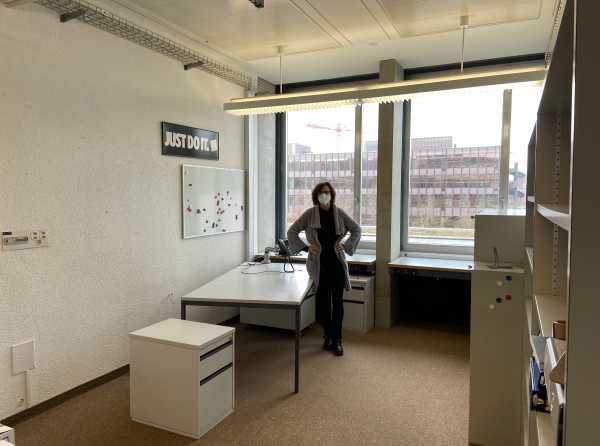
Prof. Ursula Keller in office emptied after using it for 28 years. Her “JUST DO IT” sign remains as a continued inspiration for her PhD students moving into this office in January. -
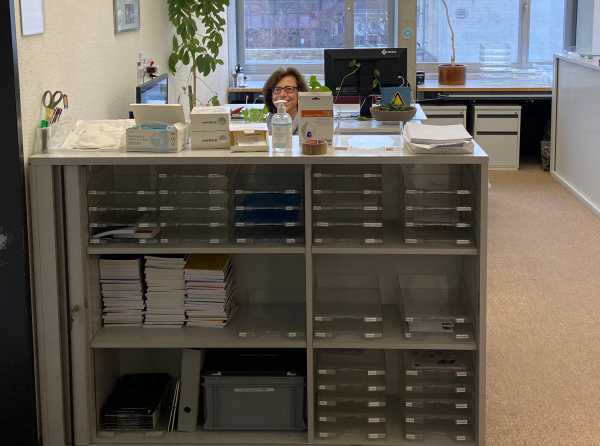
Prof. Keller’s new ETH desk location within the reception room of the ULP group behind the mailboxes (HPT E16.2). -
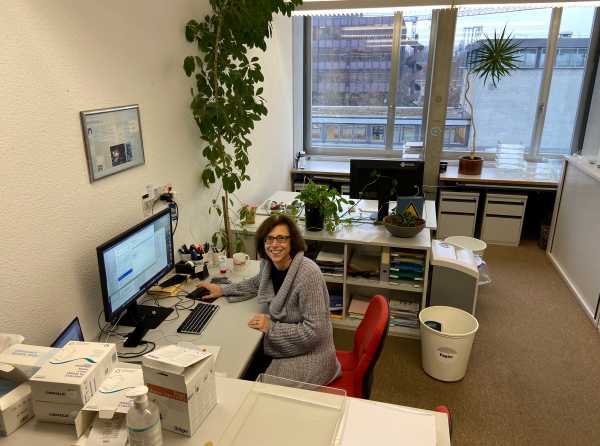
Prof. Keller at her new ETH desk, sharing the room with her secretary, behind the ULP mailboxes in the ULP reception area (HPT E16.2). -
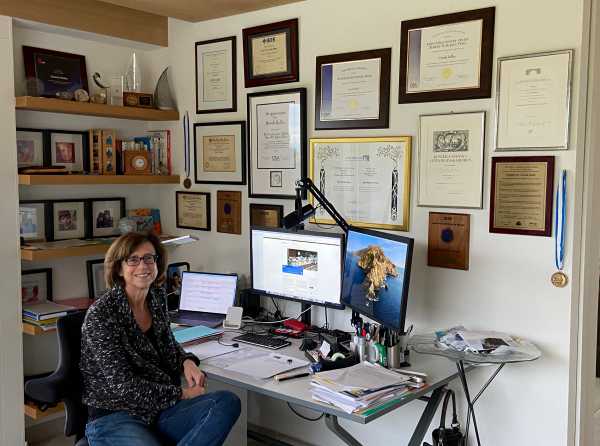
Home office of Prof. Ursula Keller, 24. Dec. 2021.